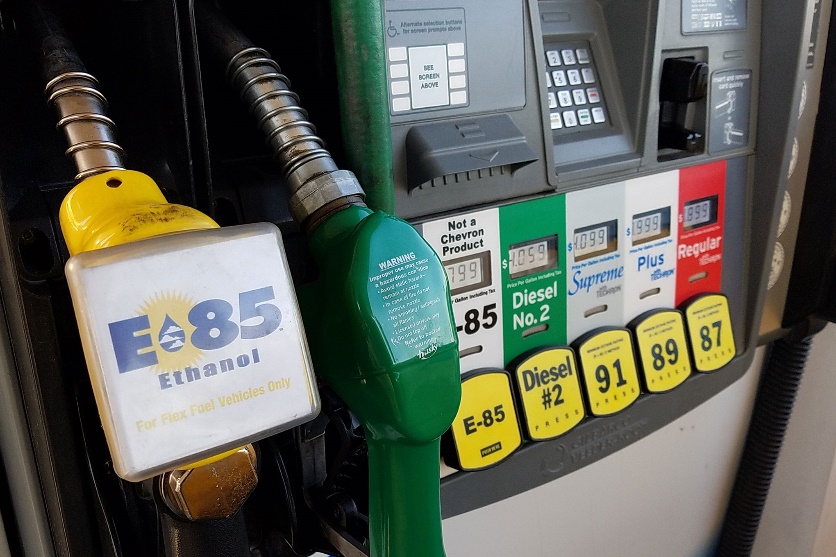
Choosing the right gasoline for your vehicle is essential for optimal performance, fuel efficiency, and engine longevity. With various fuel types and octane ratings available at the pump, it’s easy to feel overwhelmed. Let’s see if we can clear up the confusion today.
Why the Right Gasoline Matters
Different vehicle engines are designed to run on specific fuel types based on their engine design, compression ratio, and performance requirements. Using the correct fuel ensures:
- Optimal Performance – The correct gasoline allows your engine to operate as designed, delivering the intended power and performance.
- Fuel Efficiency – Proper gas prevents inefficient combustion, maximizing your miles per gallon.
- Engine Life – Incorrect gas can cause knocking, wear, or damage to engine components leading to costly repairs.
- Warranty Compliance – Using the manufacturer recommended gas avoids voiding your vehicle’s warranty.
We should start this discussion by explaining what the octane rating of gasoline means. The octane rating, or the number that is posted on the gas pump, is a measure of a fuel’s resistance to knocking, which occurs when the air-fuel mixture ignites prematurely in the engine’s combustion chamber before the spark plug fires. Knocking is bad because it can cause internal engine damage if left unchecked, and at a minimum, it reduces engine efficiency. The engine computer does monitor knock and can take measures to reduce it, but it starts with using the proper fuel. Engine manufacturers design each engine around the desired fuel source. Using good quality Top-Tier gasoline with the proper octane rating is essential to engine longevity and efficient operation. Many vehicles will list the desired fuel near the gas cap or in the owner’s manual, but I can give you some guidelines and best practices for selecting the correct gasoline.
87 Octane – Used in most naturally aspirated vehicle engines with compression ratios of less than 10:1. A good, general fuel used in many vehicles. In Minnesota, almost all the 87-octane gas has an ethanol content of about 10%.
88 or 89 Octane – Like the 87-octane gas but with an ethanol content of up to 20%.
91-93 Octane – Sometimes listed as recreational fuel without ethanol. Used in vehicles with forced induction, like turbos and supercharged, and engines with compression ratios of 10:1 and up. Good for classic vehicles or anything that sits for extended periods of time. Great for lawn mowers, generators, or any small engine driven equipment, and boats.
E-85 – Contains up to 83% ethanol. Only used in Flex-fuel vehicles or engines specifically designed to run ethanol. Ethanol has about 30% less energy content when compared to regular gasoline. Which translates to reduced efficiency, power and increased fuel consumption. See my article about “Flex Fuel Vehicles – July 2023” for more detailed information.
Flex Fuel Vehicles
85 Octane – Sometimes seen in mountainous states in the higher elevations due to the thinner air up there. Do not use below 4000-foot elevations. Only use in place of 87 octane gas.
Ethanol in Gasoline - Ethanol is touted as being an environmentally friendly renewable fuel source. While it does have some positive reduced emissions qualities, it also has some negative characteristics. Minnesota likes ethanol and does their best to incorporate it in as much of the fuel as possible. Ethanol can be corrosive to systems not designed to handle the alcohol, like classic cars or any equipment with small engines. If you want to keep your lawn mowers, generators, rototillers, chain saws, classic cars, or side by sides working properly all the time, avoid fuel that contains ethanol.
Using the correct gasoline in your vehicle is very important to maintaining the longevity and reliability of your vehicle’s engine. Find out what gasoline is needed for your specific vehicle and use the correct gas every fill-up. Look for stations offering Top Tier gasoline and avoid the low-price fuel stations that buy fuel from the cheapest suppliers. The savings you enjoy at the pump today because of the cheap gas may cost you thousands in the future. Another consideration is trying to save money with midgrade fuel, like the 88-89 octane with 20% ethanol. The efficiency loss of the ethanol content negates the savings at the pump. Never run lower octane gas than specified in the owner’s manual. Except for avoiding ethanol, using higher octane gas than required will not gain you anything in performance. The main reason I recommend the 91-octane gas for the small engines is because of the lack of ethanol. If I could purchase non-ethanol 87-octane gas for those, I would. If you’re driving a performance vehicle with a high compression engine or it has a turbo or supercharger, you’ll likely need the higher-octane fuel. You paid good money for that sweet ride! Don’t damage it by using the incorrect gasoline.
Aaron Bjorklund